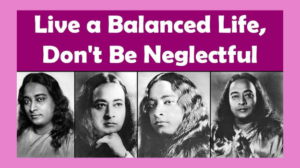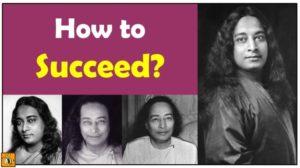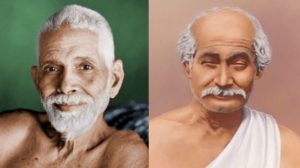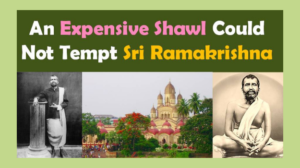Connect your consciousness with the Infinite Consciousness of God-realized sages. Subscribe to daily quote broadcast via WHATSAPP OR INSTAGRAM OR TELEGRAM
We live in an age where money is the new God. People worship money so much that they hardly stop to cultivate any detachment towards it. They do not think that one day when death arrives they will have to let go of all their possessions and money. Then how will they feel at that point?
Will they be able to give up their attachment? Likely not. Those who have not practiced detachment towards wealth while living, will find it extremely difficult to let go at death. The transition at death will become tremendously painful for their soul.
This yogic perspective about cultivating equanimity of mind towards profit and loss, and detachment towards money and possessions, was taught to Paramahansa Yogananda by his mother and father, through a few interesting life events. These events are taken from the book: Autobiography of a Yogi.
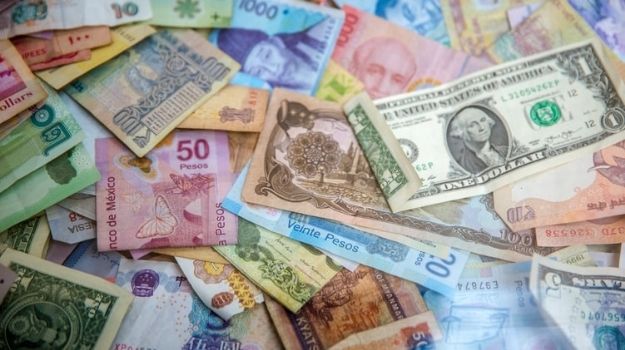
– Paramahansa Yogananda
Paramahansa Yogananda: My father, Bhagabati Charan Ghosh, was kind, grave, at times stern. His position was similar to that of a vice-president, in the Bengal-Nagpur Railway, one of India’s large companies.
Mother held an open hand toward the needy. Father was also kindly disposed, but his respect for law and order extended to the budget. One fortnight Mother spent in feeding the poor, more than Father’s monthly income.
“All I ask please, is to keep your charities within a reasonable limit.” Father said to her.
Even a gentle rebuke from her husband was grievous to Mother. She ordered a hackney carriage. “Good-bye; I am going away to my mother’s home.” Ancient ultimatum!
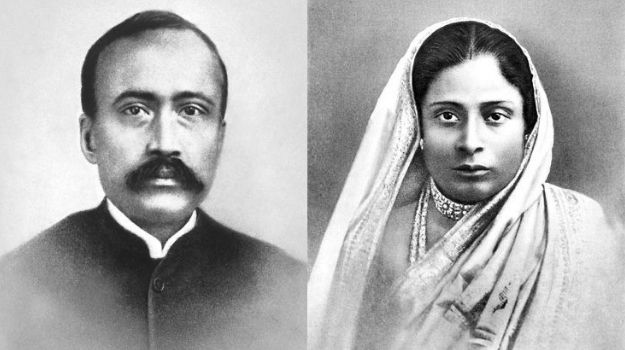
We broke into astounded lamentations. Our maternal uncle arrived opportunely; he whispered to Father some sage counsel, garnered no doubt from the ages. After Father had made a few conciliatory remarks, Mother happily dismissed the cab. Thus ended the only trouble I ever noticed between my parents. But I recall a characteristic discussion.
“Please give me ten rupees for a hapless woman who has just arrived at the house.” Mother’s smile had its own persuasion.
Father replied: “Why ten rupees? One is enough. When my father and grandparents died suddenly, I had my first taste of poverty. My only breakfast, before walking miles to my school, was a small banana. Later at the university, I was in such need that I applied to a wealthy judge for aid of one rupee per month. He declined, remarking that even a rupee is important.”
“How bitterly you recall the denial of that rupee!” Mother’s heart had an instant logic. “Do you want this woman also to remember painfully your refusal of ten rupees which she needs urgently?”
“You win!” With the immemorial gesture of vanquished husbands, he opened his wallet. “Here is a ten-rupee note. Give it to her with my good will.”
Father tended to first say “No” to any new proposal. His attitude toward the strange woman who so readily enlisted Mother’s sympathy was an example of his customary caution. Aversion to instant acceptance – typical of the French mind in the West – is really only honoring the principle of “due reflection.”
I always found Father reasonable and evenly balanced in his judgments. If I could bolster up my numerous requests with one or two good arguments, he invariably put the coveted goal within my reach, whether it were a vacation trip or a new motorcycle.
Father was a strict disciplinarian to his children in their early years, but his attitude toward himself was truly Spartan. He never visited the theater, for instance, but sought his recreation in various spiritual practices and in reading the Bhagavad Gita.
Shunning all luxuries, he would cling to one old pair of shoes until they were useless. His sons bought automobiles after they came into popular use, but Father was always content with the trolley car for his daily ride to the office.
The accumulation of money for the sake of power was alien to his nature. Once, after organizing the Calcutta Urban Bank, he refused to benefit himself by holding any of its shares. He had simply wished to perform a civic duty in his spare time.
Several years after Father had retired on a pension, an English accountant arrived to examine the books of the Bengal-Nagpur Railway Company. The amazed investigator discovered that Father had never applied for overdue bonuses.
“He did the work of three men!” the accountant told the company. “He has rupees 125,000 (about $41,250) owed to him as back compensation.” The officials presented Father with a check for this amount.
He thought so little about it that he overlooked any mention to the family. Much later he was questioned by my youngest brother Bishnu, who noticed the large deposit on a bank statement.
“Why be elated by material profit?” Father replied. “The one who pursues a goal of even-mindedness is neither jubilant with gain nor depressed by loss. He knows that man arrives penniless in this world, and departs without a single rupee.”

